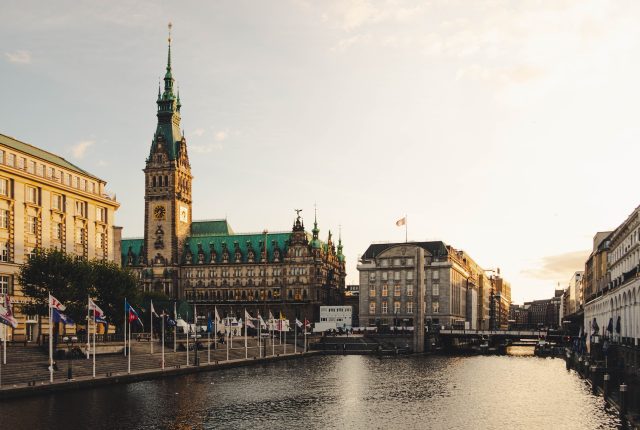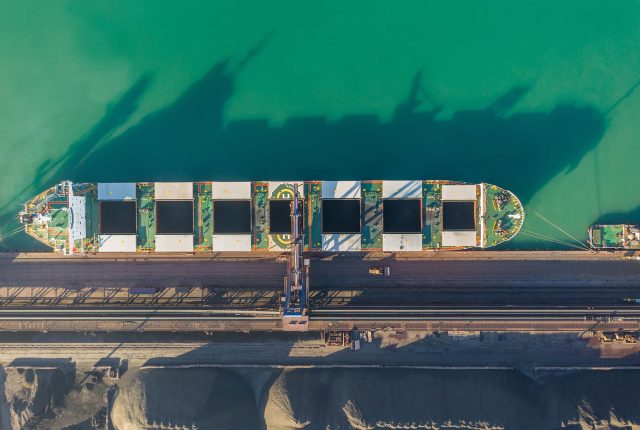
URSABLOG: See Naples And?
I’ve always wanted to come to Naples, but I suspect that amongst the many other places in the world I would like to visit, it would have remained on that unfulfilled ‘bucket list’ unless the stars hadn’t aligned themselves in a particular way. The trigger was – on a slow afternoon in early May – a review about not one, but two temporary exhibitions at the Naples Archeological Museum: Alexander The Great and the Orient, and Picasso and Classical Antiquity. These are both areas of interest for me, so I then looked at my airmiles account, and to my pleasant surprise I found that I had enough to cover a return trip. So the deed was done, online, and perhaps impulsively, but booking something ahead that I could look forward to, a treat for me, and me alone.
And what a treat! I had more or less forgotten about until I had to think about accommodation. In the end I found a nice apartment on Airbnb close to the Museum, in would looked like an attractively shabby Baroque palazzo, and booked that, and only then did I star to look at restaurants and ask for advice from those who had been here or came from there. All of that did not prepare me for the city, and my shock on arrival has only now dissipated into something calmer.
This state of unpreparedness was probably also caused by a very busy few weeks leading up to this break, and as usual when I am planning to go away, the Shipping Gods once again messed things up so that I had no chance of leaving everything behind. We tell them our plans, and they laugh their heads off. The good news however was that I managed to get an early check-in where I was staying and so I was able to work almost on arrival. By the time I went for lunch (a ridiculously good and cheap place around the corner) things were mostly tied up, and by the time I had come back, we were done. Thank you for this first gift Naples, I will always be grateful.
So it was only later, after a short snooze and a necessary shower that I was able to step out into the streets and go in search of where I had booked myself for dinner. And I found, in a way, as I walked around, a very familiar city, as it seems to me to be a combination of Athens and Palermo mixed up in a unique way.
When I told other people I was coming here, those that don’t know me that well expressed some surprise that I was coming alone, and when I said I wasn’t bothered being by myself some of them went even so far as to suggest I could just grab a gkomenaki for the weekend, and it would be fine. But as it turns out being alone has allowed me to enjoy myself – in my own way – than you may imagine. I cannot imagine that many people enjoying spending so long in the Archaeological Museum today, and taking the time to think about as well as see the different exhibitions there. Neither can I imagine them appreciating the way I move through a city, flâneur like, stopping to observe anything and everything that catches my interest. I have been indulging myself, by myself, and it has been glorious.
The exhibition for Alexander the Great took over the main hall of the top floor of the Archaelogical Museum – built to house the glories excavated from Pompei and Heracleum – and is inspired by the Alexander Mosaic, a magnificent five metre picture which was buried along with everything else when Vesuvius erupted. The mosaic itself is based on a lost Greek painting made when memories of the 333BC Battle of Issus were still alive, is composed of 2 million tiny tesserae. This is now being restored, but the exhibition itself places that memory, and Alexander’s legacy, as a forerunner to Roman expansion, and an inspiration behind it. After all Alexander’s incredible campaign before his early death reached parts of the eastern world than Rome in all its expansionist pomp, never dreamed of or realised. Picasso’s inspiration by classical art (this time including Roman as well as Greek, so not Classical with a capital C) was very interesting too. However it was another exhibition which I didn’t know about which really caught my imagination: that of the Magna Grecia Collection.
It was once again great to see great works of Greek art – and many wall and tomb paintings from the era which are sadly underrepresented within the modern boundaries of Greece – elsewhere. At one point however I went again to look at some ceramics – found in Italy, but made in Greece, in Athens, in the fifth century BC. As it happens I met a Greek couple there, and – in Greek – I told them that not only were these made in Athens, and then found in Italy, in all likelihood they were made in Kerameikos, and sold to those Greeks who had settled in Magna Graecia, those parts of southern Italy and Sicily that were colonised by various Greek city states, either by force, assimilation or persuasion. Classical Athens was a world leading centre of luxury goods, pottery in particular, and these goods were in high demand, not just for their beauty, or what they depicted, but for what they stood for. There was a lot more to export than mere artifacts: there was the techniques and technology, the art, the history, the mythology, the philosophy (Plato had a go at running the world at one point in Sicily, it didn’t end well), the science, architecture and so on. Just as Athens had collected much of the talent that went to build the city, and the culture it was proud of, so too did others buy, beg, steal or borrow what Athens had to offer.
This led me to think about colonialism, and how we seem to have settled as a fact all that happened two thousand years or so ago, and how uncomfortable we are in addressing it today. Maybe it’s simply a fact of life that we do no need a few, many, centuries of time to pass to get the bad taste out of the mouth. Just I have been blamed – personally – for the massacre at Amritsar and other excesses of the British Empire, Alexander and his invading force would not have viewed that benignly by some of people he invaded. Further, whilst the glories of Greek achievement are still there to be seen in Magna Graecia, and greatly influence the founding of the Roman Empire, I am sure indigenous culture suffered in the process.
But this comes and goes: British Imperial superiority allowed Lord Elgin the circumstances to forcibly remove and steal the marbles from the Parthenon for his own private collection. Byron did not approve, neither do I, and the tide of history has surely now turned for them to be returned. But the Parthenon was built using the proceeds of a rapidly expanding trade network, and that network led to an Athenian imperial attitude which grew, and then weakened and then was overtaken by someone else, using Athens as its inspiration: Alexander.
As I went for dinner last night, stopping along the way for an aperitivo, my mind was buzzing with all that I was seeing and feeling around me, in the way that always happens when I go to a new place that inspires me. Gesualdo, Boccaccio, Cavafys, Dante, Seferis as well as Elena Ferrante and Carlo Levi all popped into my mind at one point or another, in a jumble of ideas reacting to the unruly and unstoppable series of sensations that I was experiencing.
I made a mistake, but a forgivable one, on reflection. I thought I was in an Italian city where dinner is eaten earlier and people go to bed. I was in Magna Graecia however, and after I mused over my final negroni after dinner, I watched as parents dropped off their children for a night out, and the city really started buzzing, just like Athens that doesn’t really get going in the evening until after eleven o’clock. And I like the tourist I was, was about to head home and sleep.
Naples is a real city, in the way that Athens is, where people have lived forever, but new influxes of people, ideas, cultures and languages combine and collide with each other to create an incredible – sometimes messy – amalgamation of wealth and poverty, happiness and misery, progress and stagnation, but always alive, always energetic, always moving, built on the shifting sands of history, thought, and power. I am not even here two days, and yet I feel energised, revitalised, inspired. I love it.
As the saying goes: see Naples, and die. I suppose that means once you have seen the beauty of the city on the bay, you have seen enough. But I, even though I haven’t see a glimpse of the sea yet – I’m saving that for tomorrow – feel differently. Experiencing Naples, understanding a small part of it, recognising perhaps how it works, has inspired me to return home, to Athens, rejuvenated. My mind has been opened, loosened and expanded. I have seen Naples, and I can tell you, I am no mood for dying any time soon.
Simon Ward


